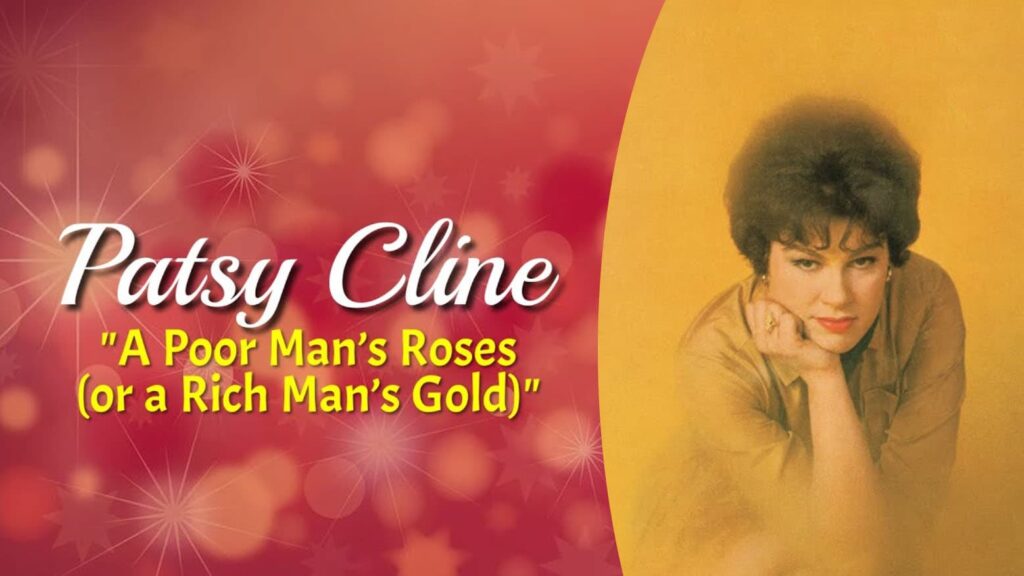
Love’s True Value: A Timeless Reflection on Affection and Wealth
In the tapestry of country music’s golden age, certain songs stand out not just for their melodic beauty, but for the profound truths they speak. They are the anthems of a generation, echoing sentiments that are as relevant today as they were decades ago. Among these timeless classics is Patsy Cline’s poignant ballad, “A Poor Man’s Roses (Or a Rich Man’s Gold).” Released in 1957, this song, though not a major chart-topper in the same vein as her later smashes, holds a special place in the hearts of those who appreciate the depth of her artistry. While it only reached a modest position of No. 14 on the Billboard Country & Western Jukebox chart, its legacy far surpasses its initial commercial success, proving that some songs are meant to be cherished rather than just consumed.
The story behind this song is as rich and layered as the emotions it conveys. Penned by the legendary songwriting trio of Bob Hilliard, Jack Wilson, and Milton De Lugg, it found its perfect interpreter in Patsy Cline. At this point in her career, she was on the cusp of stardom, her voice a flawless instrument capable of conveying immense heartache and soaring joy. “A Poor Man’s Roses” was recorded during a pivotal time for Cline, a period when she was honing the very style that would make her a legend. It was featured on her debut album, Patsy Cline, a collection that showcased her versatility and raw talent. The song’s relatively subdued chart performance is a testament to the music industry’s evolving landscape at the time; it wasn’t the kind of honky-tonk hit that dominated the charts, but rather a sophisticated, crossover-friendly piece that hinted at the iconic style that would later define her.
At its core, the meaning of “A Poor Man’s Roses (Or a Rich Man’s Gold)” is a simple yet profound exploration of love’s true value. The song presents a stark, almost philosophical, choice. On one hand, you have the “poor man’s roses”—a symbol of sincere, heartfelt love. These roses, though they may wither and fade, represent a love that is honest, pure, and without pretense. It’s the kind of love that comes from the heart, a gift given with no expectation of return. On the other hand, there is the “rich man’s gold”—a symbol of material wealth, security, and a life of comfort. The gold offers a different kind of promise, one of stability and luxury, but it lacks the emotional depth and genuine affection of the roses. The song beautifully captures this tension, a universal dilemma that many have faced: do you choose the genuine, albeit humble, love of a good heart, or the glittering, yet potentially hollow, promise of a comfortable life?
Patsy Cline’s delivery of this song is what elevates it from a simple ballad to a timeless masterpiece. Her voice, with its characteristic warmth and controlled vibrato, is a beacon of emotional truth. She doesn’t just sing the words; she embodies the choice, the longing, and the quiet resignation that comes with such a decision. For many older readers, this song isn’t just music; it’s a memory. It’s the soundtrack to a time when life felt simpler, yet the emotional stakes were just as high. It evokes images of slow dances in dimly lit halls, of quiet conversations under a starry sky, and of the profound questions that define a life. Listening to Patsy Cline sing “A Poor Man’s Roses” is like opening a well-preserved photo album—each note is a snapshot of a different time, a different emotion, a different choice. It reminds us that some things, like true love, cannot be measured in dollars and cents, and that the most valuable gifts are often the ones that come straight from the heart.